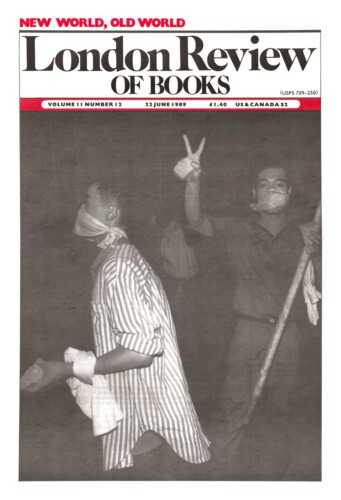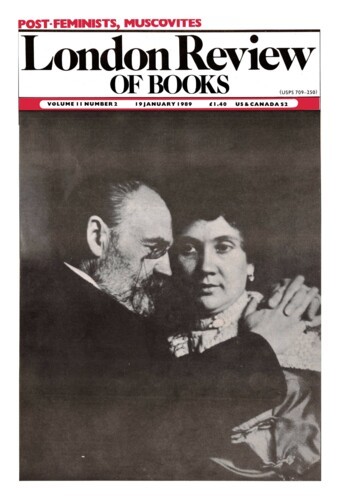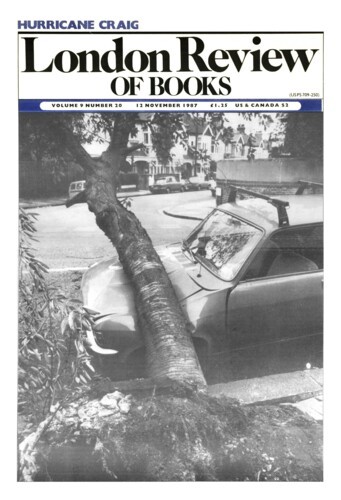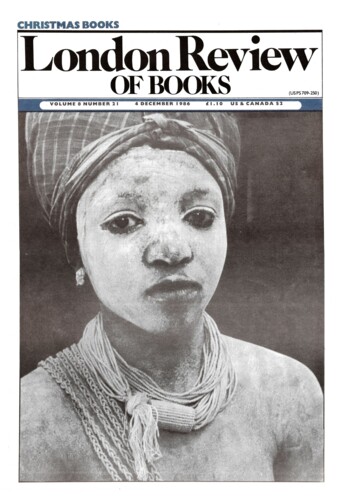Conrad and Prejudice
Craig Raine, 22 June 1989
‘Joseph Conrad was a thoroughgoing racist.’ This quotation is taken from ‘An Image of Africa: Racism in Conrad’s Heart of Darkness’, a lecture delivered by the Nigerian novelist Chinua Achebe as long ago as 1974 and now collected in Hopes and Impediments.




